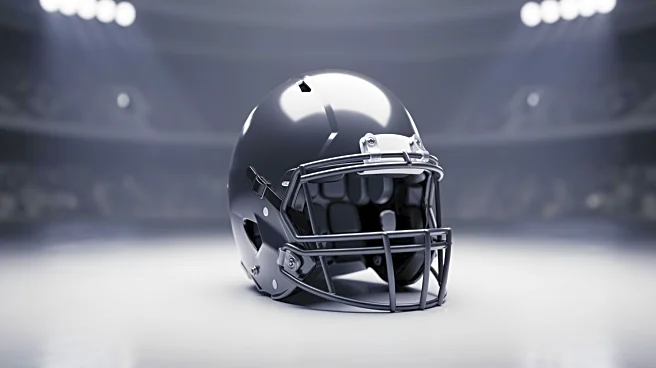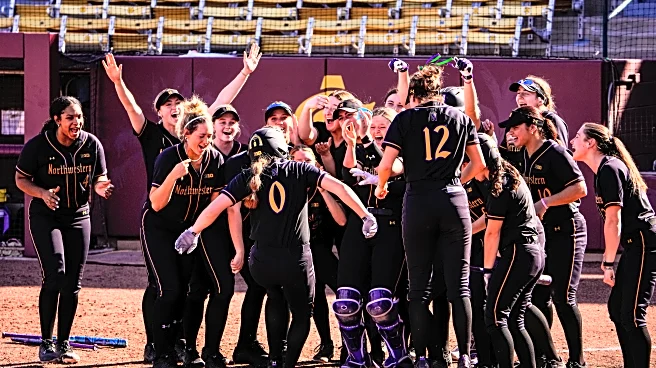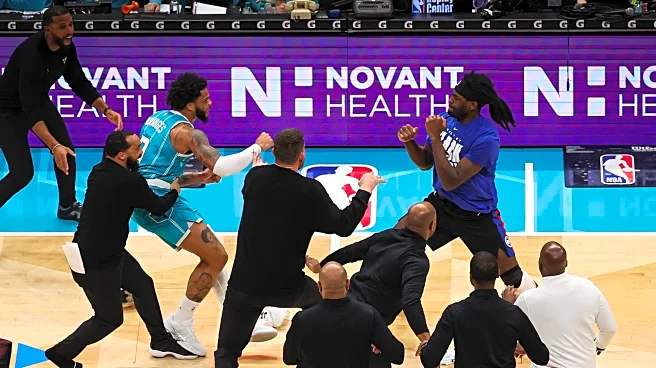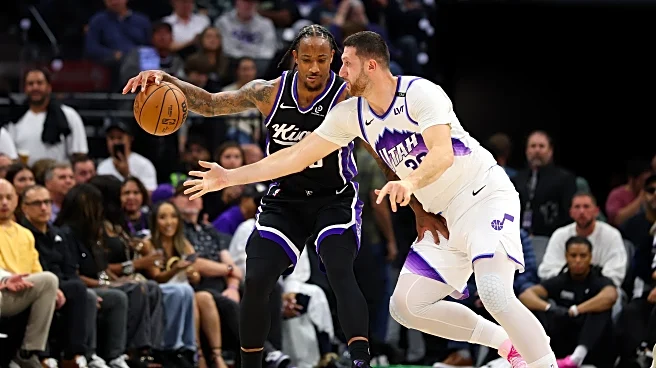What's Happening?
The Miami Dolphins, currently holding a 1-6 record, are not expected to undergo any immediate changes in leadership or strategy, according to reports. Owner Stephen Ross reportedly plans to allow coach
Mike McDaniel and General Manager Chris Grier to complete the season before making any decisions regarding their future. The Dolphins' recent 31-6 loss to the Cleveland Browns has intensified scrutiny and criticism from fans and media. Despite the team's struggles, Ross appears committed to maintaining stability for the remainder of the season. The Dolphins face upcoming games against the Atlanta Falcons and Baltimore Ravens, which could further influence Ross's decision-making process.
Why It's Important?
The decision to refrain from immediate changes reflects a strategic approach by the Dolphins' management, potentially aiming to avoid disruption mid-season. This stance may impact team morale and fan engagement, as supporters express frustration over the team's performance. The Dolphins' poor start raises questions about the effectiveness of current leadership and strategies, with implications for future team development and draft prospects. Maintaining the status quo could be seen as a gamble, risking further losses and diminishing fan interest. However, it also provides an opportunity for the current leadership to demonstrate their ability to turn the season around.
What's Next?
The Dolphins will need to address their performance issues as they prepare for upcoming games. The team's ability to improve and secure wins will be crucial in determining the future of the coaching staff and management. If the Dolphins continue to struggle, Ross may face increased pressure to make changes, potentially leading to a reevaluation of team strategies and personnel. The outcome of the next few games will likely influence the team's direction and decisions regarding leadership.
Beyond the Headlines
The Dolphins' situation highlights broader challenges in sports management, including balancing short-term performance with long-term development. The decision to maintain current leadership may reflect a belief in the team's potential to improve, despite immediate setbacks. This approach underscores the complexities of managing a professional sports team, where financial considerations, fan loyalty, and competitive success must be carefully weighed.










